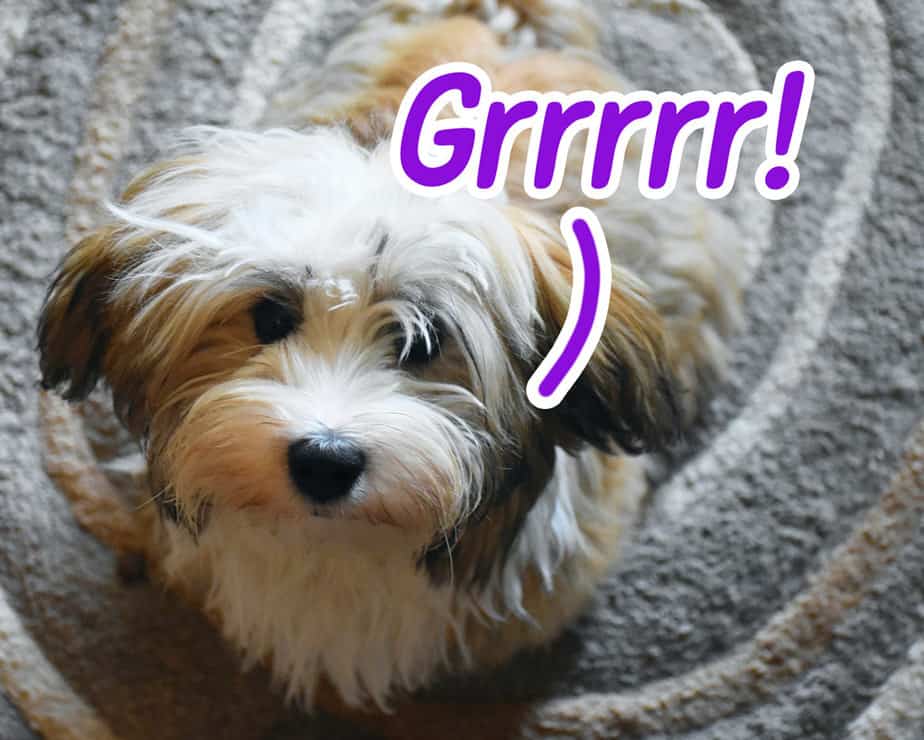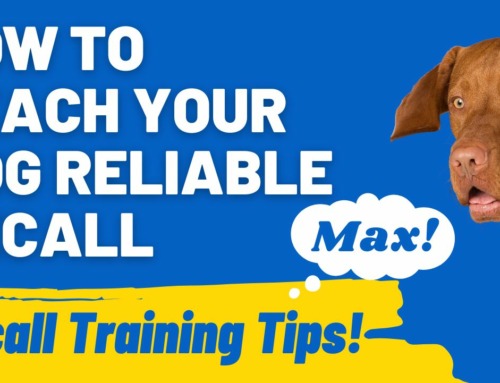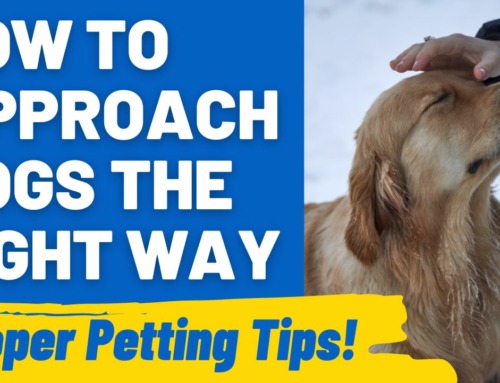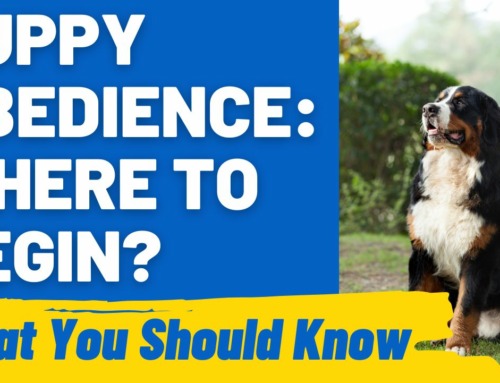Growling can no doubt be worrisome coming from your Havanese puppy. The good news is that growling is not always indicative of aggression, and even if it is, there are ways to solve and prevent the problem. In this post we will cover common reasons why a Havanese puppy may growl, as well as how to correct growling (if it is in fact a problem).
Why is my Havanese puppy growling?
While we associate growling with aggression, growling can actually communicate a variety of emotions. And communication is exactly what they’re doing when they growl.
When your Havanese puppy is growling they may be trying to tell you the following emotion:
-
They’re scared
-
They’re uncomfortable
-
They’re playful
-
They’re happy and excited
-
They’re fearful of something being taken away
The context of the growl is an important factor in determining why your Havanese puppy is growling. When they’re growling, ask yourself in which scenario of the above is it taking place.
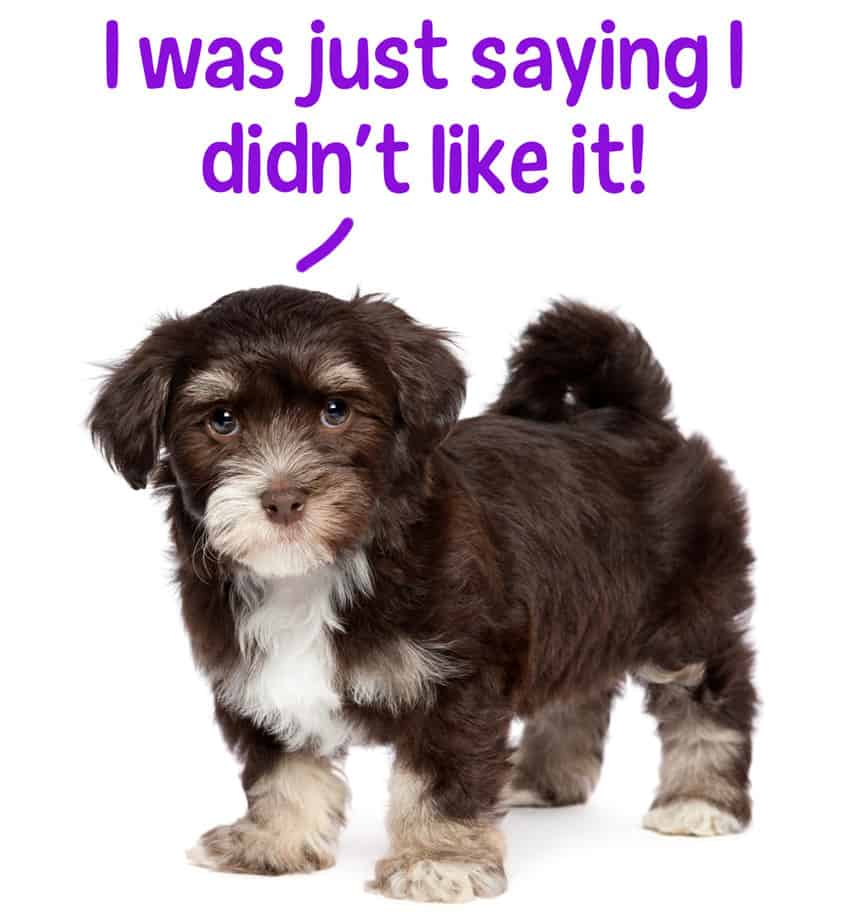
Should you stop your Havanese from growling?
No, when a dog is growling, it’s important not to punish them for their response.
While it may seem scary that your puppy is growling, it’s simply your Havanese telling you something.
Instead of punishing them for growling, it’s best to respect your dog’s communication. Take a moment to read their body language and understand why they are growling.
In any case, it’s best to address the underlying cause of the growl, rather than the growl itself.
It’s not uncommon for a dog that is punished for growling to learn that growling doesn’t work, and to escalate straight to biting instead.
Respecting your dog’s growl ensures you will keep the warning sound, instead of creating a dog that bites with much less apparent warnings.
Does your Havanese puppy growl when people try and pick them up? If so, read our post: Puppy Growls When Picked Up: (How to Resolve)
The connection between body language and growling
Not only should you look at the situation itself, but you should also examine your puppy’s body language to get the whole picture.
A stiff, rigid body is telling you they mean business. A loose, wiggly body and a moving tail is telling you it’s all fun and games!
Take the following scenario:
You find your Havanese puppy growling in a situation with another dog. Your Havanese puppy may be guarding a toy, or is scared of the other dog, and has stiff body language along with low growling.
The other Havanese puppy may be growling during play, attempting to get your puppy to chase them and play with them, while making fun, short, bouncy movements.
In both of these examples, we are presented with a growling Havanese puppy. However, further examination of the situation and the body language of the Havanese puppies showed us that each puppy was experiencing very different feelings and reasons for their growls.
I’ve personally worked with several Havanese growling for different reasons. One of them was simply very excited and growling out of play. Their owner worked with me in order to teach the dog how to stay calm and under control even in exciting situations. This is the benefit of having a professional work with you and your puppy.
Another Havanese I worked with was worried about new people approaching. Not only are they strangers, but as a small breed, it makes sense for a Havanese to be more worried about people and bigger dogs from a safety aspect.
My Havanese puppy is aggressive
If you’ve determined that your Havanese puppy is reacting aggressively, it’s likely time to seek professional help.
While it’s possible to solve aggression on your own, if you don’t already have the experience of a professional dog trainer or behavior consultant, you’re likely going to learn through trial and error along the way.
A Havanese puppy that is reacting aggressively, and is growling and biting, is not something to be solved through trial and error. This can end up making the problem worse.
Several reputable sources to search for a professional dog trainer or behavior consultant include:
- The Certification Council for Professional Dog Trainers
- The International Association of Animal Behavior Consultants
- The Pet Professional Accreditation Board
Each of these organizations has varying requirements for their members, but all of them require their trainers and consultants to use ethical, science-based training methods.
If you don’t have a trainer local to you, that’s OK! Many of these trainers also offer virtual consultations.
If your Havanese has ever tried to bite without reason, then be sure to read our post, Dog Bites Without Warning.
Resource guarding in Havanese puppies
Resource guarding occurs when a dog is worried about a perceived resource of value being taken away.
Dogs often exhibit resource guarding behavior where one of the following is threatened of being taken away:
- Toys
- Food
- Treats
- People
- Places (For eg. bed)
While severe cases of resource guarding should be treated with the help of a professional, you can treat (and prevent) the most mild cases by trading with your dog.
Instead of taking things away from your Havanese, try offering a trade for a toy or treat that’s of equal or greater value to your dog.
With practice, your dog will learn that you aren’t there to take their things, but are going to instead offer a trade of something just as good or better.
Taking away this conflict takes away the minor resource guarding that you might be seeing, or even prevents it in cases of working with young puppies.
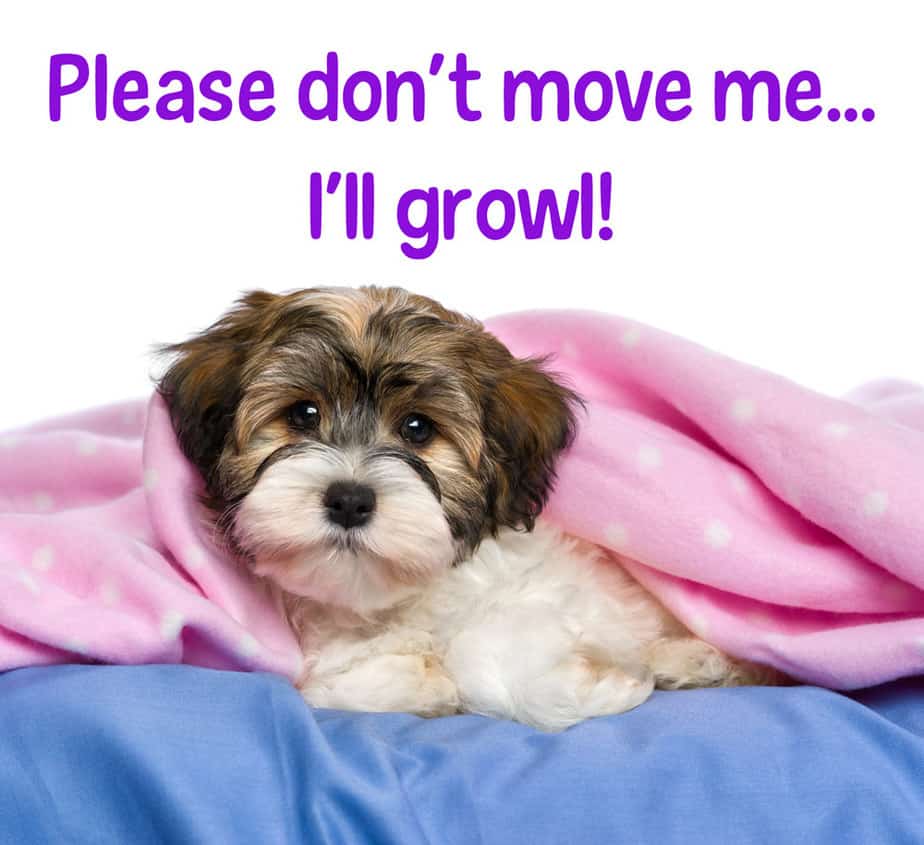
Havanese puppy growling at kids
If your Havanese puppy is growling at kids, it’s also likely time to seek the help of a professional dog trainer. This is especially true if you have kids in your household, or have kids that often visit.
Havanese puppies may growl at kids if they weren’t well socialized to kids as young puppies. They also may be uncomfortable with their more erratic, quick movements and loud noises.
Because growling often precedes more aggressive behaviors, such as biting, it’s important to intervene before the behavior escalates.
A dog that has learned to bite, especially one that has learned that growling doesn’t work to get their point across, is much more dangerous and difficult to work with in the future.
It’s important to take steps to manage your Havanese puppy’s behavior to ensure they don’t bite someone, or put in a situation where they feel the need to bite.
This often means using management techniques, such as crating your puppy when kids are in the home, using a baby gate or doorways to separate your puppy and kids, and avoiding public places where children are present.
Management may also include teaching your Havanese puppy how to wear a muzzle. While there’s a common misconception that muzzles are only for “bad” dogs that are extremely aggressive, muzzles are actually just a safety tool.
Using the resources over at the Muzzle Up! Project, you can learn how to properly fit a muzzle that will allow your Havanese to eat, drink, and pant, while keeping everyone in the home safe.
Plus, there are many muzzles on the market that are actually cute and fun! You can often use paint or duct tape to dress up a muzzle, and those that make biothane muzzles can often make them in custom colors as well.
When do Havanese puppies calm down?
Most Havanese will start to mature around 8-10 months and have an adult temperament by 2-3 years of age.
You might be thinking that waiting until your Havanese puppy is older will help them calm down and stop growling. However, without intervention, your puppy’s behavior is likely to get worse – not better.
While all Havanese share some breed characteristics, each dog is still an individual within their breed. Some dogs may be more energetic or shy than others.
When you choose your Havanese, you can ask the breeder about the temperaments of the parents. Behavior is always a mix of temperament and genetics, so it’s important to avoid purchasing a puppy from parents that have characteristics you don’t want.
If you’ve determined that your dog is behaving truly aggressively, it’s important to seek professional help sooner rather than later.

